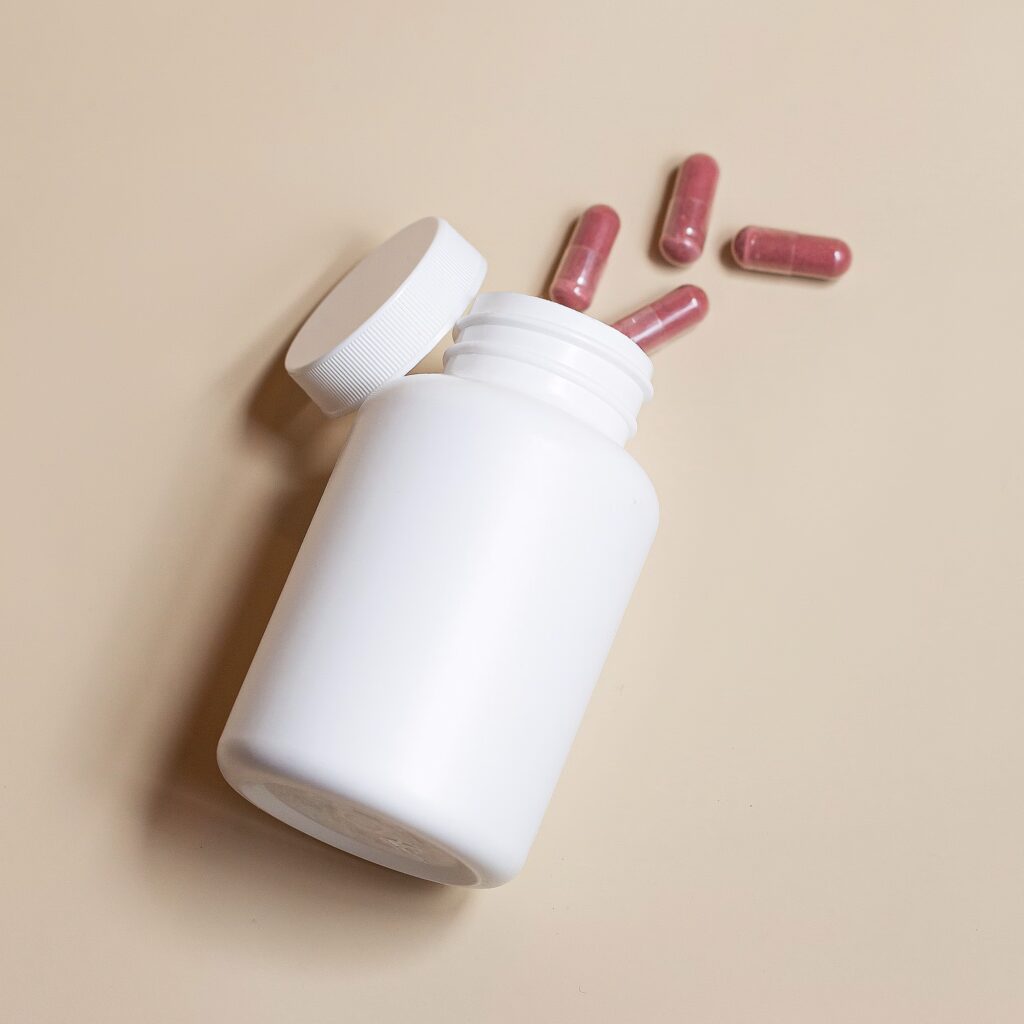
Nicotinamide adenine dinucleotide (NAD+) has received profound attention in the realm of longevity research and anti-aging supplements. This essential coenzyme plays a crucial role in cellular energy production and various biological processes. As we age, our NAD+ levels naturally decline, which has led researchers to investigate whether boosting NAD+ could be a key to healthier aging. Let’s dive into the science behind NAD+ and explore its potential benefits and risks.
What is NAD+?
NAD+ is a coenzyme found in all living cells. It’s involved in hundreds of metabolic processes, including:
– Converting food into energy
– Repairing DNA damage
– Supporting cellular stress responses
– Regulating circadian rhythms
Think of NAD+ as a cellular multitool, essential for keeping our biological machinery running smoothly.
NAD+ Decline
As we age, our NAD+ levels naturally decrease. This decline has been associated with various age-related conditions and diseases[1]. Some factors that contribute to NAD+ depletion include:
– Oxidative stress
– DNA damage
– Inflammation
– Metabolic dysfunction
Potential Benefits of NAD+ Supplementation
Research suggests that boosting NAD+ levels might help counteract some aspects of aging and improve overall health. Here are some potential benefits:
1. Improved Cardiovascular Health
NAD+ plays a crucial role in maintaining heart health. Studies have shown that NAD+ supplementation may help reduce blood pressure and arterial stiffness, two important markers of cardiovascular health[2].
2. Enhanced Cognitive Function
NAD+ is essential for proper brain function. Some research suggests that increasing NAD+ levels might help protect against age-related cognitive decline and neurodegenerative diseases[3].
3. Increased Energy and Metabolism
As NAD+ is crucial for energy production in cells, boosting its levels may help improve overall energy levels and metabolism[4].
4. Better Muscle Function
NAD+ is important for maintaining muscle health and function. Some studies have shown that NAD+ supplementation may help improve muscle strength and endurance, particularly in older adults[5].
5. Potential Longevity Effects
While more research is needed, some animal studies have suggested that boosting NAD+ levels might extend lifespan and improve overall health in later years[6].
The Science Behind NAD+ Supplementation
NAD+ itself isn’t easily absorbed by the body when taken orally. Instead, researchers have focused on precursor molecules that the body can use to produce NAD+. The two most studied precursors are:
1. Nicotinamide Riboside (NR)
2. Nicotinamide Mononucleotide (NMN)
These precursors have shown promise in increasing NAD+ levels in various tissues[7]. Here’s a simplified explanation of how they work:
1. You take an NAD+ precursor supplement (NR or NMN).
2. Your body absorbs the precursor and converts it into NAD+.
3. Cells use the increased NAD+ to power various biological processes.
Clinical Evidence
Several clinical trials have investigated the effects of NAD+ precursor supplementation in humans. Here are some key findings:
– A study on healthy middle-aged and older adults found that chronic supplementation with nicotinamide riboside (NR) was well-tolerated and effectively increased NAD+ metabolism[8].
– Another trial showed that NMN supplementation increased blood NAD+ concentrations and improved physical performance in middle-aged adults.
– Research has also suggested that NAD+ precursors might help improve insulin sensitivity and reduce the risk of metabolic disorders.
Potential Risks and Side Effects
While NAD+ precursor supplements are generally considered safe, it’s important to note potential risks and side effects:
– Common side effects may include nausea, fatigue, headaches, and gastrointestinal discomfort.
– High doses of nicotinamide (a form of vitamin B3 and NAD+ precursor) may inhibit sirtuins, proteins that play a role in longevity.
– There’s a theoretical concern that boosting NAD+ levels might promote the growth of existing cancers, although this hasn’t been observed in human studies[1].
Conclusion
The research on NAD+ and its precursors is exciting and promising. While more studies are needed to fully understand the long-term effects and optimal dosing, the current evidence suggests that NAD+ supplementation could play a role in healthy aging and disease prevention.
As with any supplement, it’s crucial to consult with a healthcare professional before starting NAD+ precursor supplementation, especially if you have existing health conditions or are taking medications.
Remember, while supplements can be beneficial, they’re not a magic bullet. A healthy lifestyle, including a balanced diet, regular exercise, and good sleep habits, remains the foundation of healthy aging.
Sources
[1] Dietary Supplementation With NAD+-Boosting Compounds in Humans https://pubmed.ncbi.nlm.nih.gov/37068054/
[2] Chronic nicotinamide riboside supplementation is well-tolerated and … https://www.nature.com/articles/s41467-018-03421-7
[3] NAD+ in Aging: Molecular Mechanisms and Translational Implications https://pmc.ncbi.nlm.nih.gov/articles/PMC7494058/
[4] Possible Adverse Effects of High-Dose Nicotinamide – PubMed Central https://pmc.ncbi.nlm.nih.gov/articles/PMC7277745/
[5] Evaluation of safety and effectiveness of NAD in different clinical … https://pubmed.ncbi.nlm.nih.gov/37971292/
[6] Potential Synergistic Supplementation of NAD+ Promoting … – PubMed https://pubmed.ncbi.nlm.nih.gov/36678315/
[7] NAD+ Metabolism in Cardiac Health, Aging, and Disease | Circulation https://www.ahajournals.org/doi/10.1161/CIRCULATIONAHA.121.056589
[8] The efficacy and safety of β-nicotinamide mononucleotide (NMN … https://pubmed.ncbi.nlm.nih.gov/36482258/
Leave a Reply